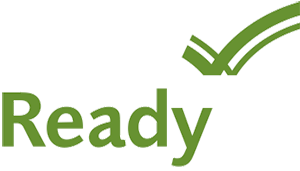FEMA’s Ready Campaign has observed National Preparedness Month since 2004 to encourage Americans to prepare for emergencies. The month is a great time to take small steps to make a big difference in being prepared.
Preparedness Starts at Home, the 2025 theme, focuses on getting back to the essentials of preparedness. In addition to sharing the tips, messages and graphics you can find on Ready.gov, there are four key actions you can take to prepare for any disaster you may face:
- Know your risk
- Know what could happen where you and your family live. This helps you figure out what you need to do to stay safe. You can explore various disasters and emergencies on Ready.gov.
- Make a family emergency plan
- Making a plan early helps you reduce stress and save time and money. Follow four easy steps and create a free Family Emergency Plan quickly and easily with our fillable form.
- Disasters are costly but preparing for them doesn’t have to be. Taking time to prepare now can help save you thousands of dollars and give you peace of mind when the next disaster or emergency occurs. Visit Ready.gov’s low and no-cost tip page to see how you can be better prepared without spending a lot of money.
- Build an emergency supply kit
- Having enough food, water and medicine can help you stay safe and comfortable until help arrives. Having what you need can also prevent injury and damage to your home.
- Build a go-bag with all the essentials you might need, so you don’t need to scramble in an evacuation situation. Find a list of supplies at Build A Kit.
- Get involved in your community by taking action to prepare for emergencies
- Emergencies can happen fast, and emergency responders aren’t always nearby. You may be able to save a life by taking simple actions immediately. You can learn these steps when you take a first aid class through many organizations in your community..
- Join a Community Emergency Response Team program and get trained on basic disaster response skills, such as fire safety, light search and rescue, team organization and disaster medical operations.
- Take a free online independent study course through FEMA’s Emergency Management Institute or a CPR course through the American Red Cross to learn more about how to help your community become more prepared.
Read the Trump Administration Presidential Message on National Preparedness Month.


